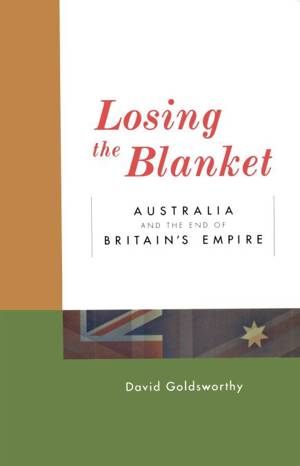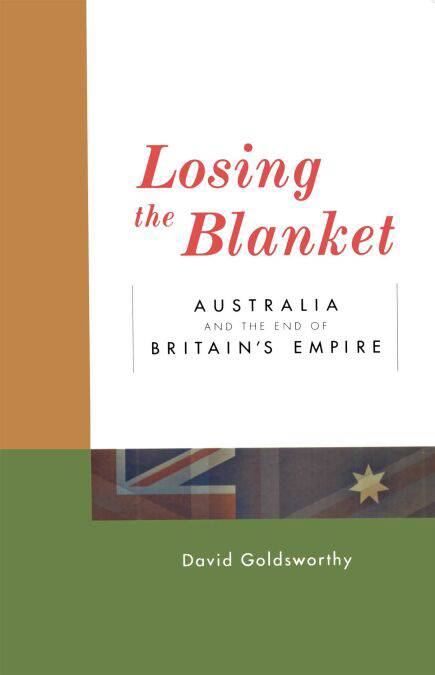
Door een staking bij bpost kan je online bestelling op dit moment iets langer onderweg zijn dan voorzien. Dringend iets nodig? Onze winkels ontvangen jou met open armen!
- Afhalen na 1 uur in een winkel met voorraad
- Gratis thuislevering in België vanaf € 30
- Ruim aanbod met 7 miljoen producten
Door een staking bij bpost kan je online bestelling op dit moment iets langer onderweg zijn dan voorzien. Dringend iets nodig? Onze winkels ontvangen jou met open armen!
- Afhalen na 1 uur in een winkel met voorraad
- Gratis thuislevering in België vanaf € 30
- Ruim aanbod met 7 miljoen producten
Zoeken
Losing The Blanket E-BOOK
Australia and the end of Britain's Empire
David Goldsworthy
E-book | Engels
€ 16,15
+ 16 punten
Omschrijving
When Britain's sprawling empire wound down with unexpected speed in the 1960s, Australia lost a comforting 'security blanket'. We had to struggle to re-establish and protect ourselves in a volatile and threatening world. Australia's interests in empire had taken many forms-strategic, economic, cultural and psychological. Indeed Australia had used British experience as a template for its own 'mini-imperialism', in Papua and New Guinea for example. The most important connnections between Britain's imperial interests and Australia's regional ones were in Southeast Asia, but they extended to the Indian and Pacific oceans and even to Africa. The effects of the end of empire upon Australia's external relations have tended to be eclipsed by historians' emphasis on Cold War imperatives and Australia's consequent alignment with the United States. Losing the Blanket rights the balance by showing how Australia's foreign policy during the 1950s and 1960s was affected by the end of empire. Under the thirty-year rule, vital primary sources in both Britain and Australia are now accessible. They reveal the effects of post-imperialism upon Australian policies in key areas such as defence planning in Southeast Asia, the politics of the Commonwealth, European union, Australia's own colonial policy, and relations with Britain itself. David Goldsworthy's account is both clear and thorough. As first Menzies and then Holt looked to protect Australia's interests, the groundwork was laid for our involvement in Vietnam and for the pattern of Australia's foreign relations today.
Specificaties
Betrokkenen
- Auteur(s):
- Uitgeverij:
Inhoud
- Aantal bladzijden:
- 218
- Taal:
- Engels
Eigenschappen
- Productcode (EAN):
- 9780522876123
- Verschijningsdatum:
- 31/08/1998
- Uitvoering:
- E-book
- Beveiligd met:
- Adobe DRM
- Formaat:
- ePub

Alleen bij Standaard Boekhandel
+ 16 punten op je klantenkaart van Standaard Boekhandel
Beoordelingen
We publiceren alleen reviews die voldoen aan de voorwaarden voor reviews. Bekijk onze voorwaarden voor reviews.











